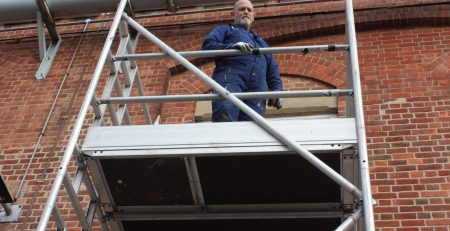A Beginner’s Guide to Cost Management in Construction
In the United Kingdom, the construction industry contributes over £117 billion to the national economy. From civil engineers to electricians, carpenters to scaffolders, there are many different types of construction workers. However, they all have one thing in common – the need to manage costs in this multi-billion-pound sector.
A finished construction project is a combination of raw materials, specialised (and often expensive) equipment, and hours of hard work by a team of professionals. Each of these components comes at a price, and managing them all can be a tricky process.
If you’re embarking on a new construction project, read on. Whether you’re concerned about manufacturing costs or want to streamline your operations, we’ve explained everything you need to know in our beginner’s guide to cost management in construction.
Why Is Cost Management Important?
Let’s start with the basics. Cost management, otherwise known as cost control, is one of the most important parts of any construction project. But why? Below, we’ve outlined the key reasons:
- To make sure the design can be completed within budget
- To give contractors accurate projections
- To make sure the budget isn’t blown early on raw materials and can’t cover the rest of the process
The good news is that achieving a successful cost management strategy doesn’t have to be complicated, as long as you know the steps to take.
Make A List of Your Expenditures
Before attempting to calculate costs, the first step is to make a list of your expenditures. This will ensure that you don’t overlook any parts of the construction process and have a nasty surprise when it comes to totalling the cost.
Examples of expenditures include raw materials, transportation, insurance, surveys, professional labour, and the hire of specialist advisors.
Hire A Quality Surveyor
Quality surveyors (QS) are industry professionals who specialise in construction costs and contracts. Their role is to minimise expenses without compromising on safety or quality, and usually oversee the whole process from the initial project estimates to the final paperwork.
Hiring a quality surveyor will enable you to keep costs as low as possible, without cutting corners. This ensures that your construction project will be a worthwhile investment once completed.
Some of the steps which a quality surveyor might carry out are:
- Monitoring Cost Performance: The cost performance refers to whether or not your current costs are in line with your expected budget
- Amending Cost Baseline: This is the process of amending your budget and projections if any unexpected costs arise, and then informing any stakeholders in the project about the changes
- Reserve Analysis: Reserve analysis is the act of forecasting any potential overheads, based on factors such as the risk of damage to materials, conditions which could delay the construction work, or uncovering existing problems which will need fixing
- Cash-flow Analysis: This is a form of financial reporting which involves recording the inflow and outflow of cash in order to monitor your balance
We hope this article has given you an introduction to the world of cost management in construction. Whether you’re planning a small repair project or a large-scale building, optimising your cash control is one of the most important ways to ensure success.












